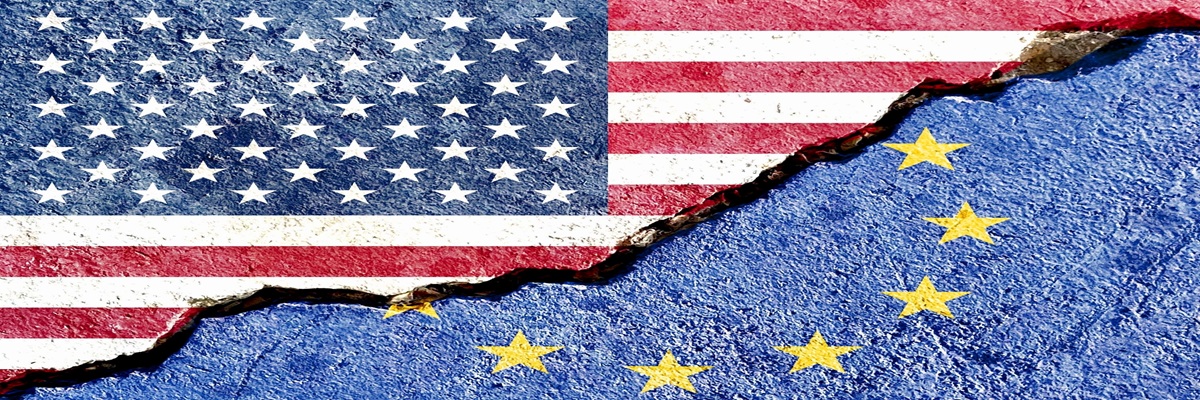Diplomacy
US-Europe: our paths are splitting

Image Source : Shutterstock
Subscribe to our weekly newsletters for free
If you want to subscribe to World & New World Newsletter, please enter
your e-mail
Diplomacy

Image Source : Shutterstock
First Published in: Feb.13,2025
Mar.04, 2025
It was to be expected, and we were poorly prepared for it, Donald Trump’s phone call to Vladimir Putin has undoubtedly ended 75 years of transatlantic relations. We, the French, had long warned that our security interests with the United States were not always aligned and that these differences could lead to serious disputes. There was the Suez Canal in 1956, there was Iraq in 2003, and there was, in a more moderate sense, Macron’s brain-dead stance on a dispute arising from Turkey’s actions in Syria in 2019. From now on, there will be February 12, 2025. But today, the situation is more serious because it is the security of Europe itself that is at stake, the very security that forms the heart of the existence of the Atlantic alliance.
One can understand that the war in Ukraine is unwinnable and that a solution must be found to stop this war. One can understand that Ukraine’s accession to the North Atlantic Treaty Organization (NATO) is a red line for Russia. One can also understand that the United States wants Europeans to take a more significant share of the burden of their defence.
However, the problem is that the United States made Ukraine’s NATO membership a goal of the Atlantic alliance at the NATO summit in Bucharest in 2008, against the advice of France and Germany at the time, thus worsening a relationship with Russia that was already deteriorating.
The problem also is that Trump wants to negotiate peace between Ukraine and Russia without inviting the European Union and other European countries to the negotiating table, while Europe’s security is at stake.
The risk is now clear: a form of bilateral agreement between the United States and Russia, benefiting the interests of both countries, could leave Ukraine severely weakened and an easy prey for Moscow, thereby weakening other European countries consequently. As a consolation prize, we will have to ensure Europe’s conventional security, as US Secretary of Defence Pete Hegseth announced to Europeans at the opening of the NATO ministerial meeting held in Brussels on 12–13 February 2025.
This situation will place Europeans in a terrible dilemma:
Either they do not wish to give security guarantees to Ukraine and completely discredit themselves in the eyes of powers such as the United States, Russia, and China, as Europeans will have shown that they are unable to defend the continent, while also creating a significant long-term risk to Europe’s security.
Or they provide security guarantees to Ukraine, accepting the cost of a financial burden that will affect the European Union’s competitiveness in the long term.
In light of this situation, some advocate for the establishment of a European pillar within NATO. This solution, however, seems outdated given the new context. If one considers that the United States is negotiating peace in Europe without and against the Europeans, and that they no longer wish to defend Europe with conventional military means (will they respect the NATO Defence Planning Process?), it is better for Europeans to fully take on Europe’s security. This would mean taking control of NATO: Europeans must quickly discuss this option and communicate their decision to Secretary General Mark Rutte. It will also be easier to make NATO and the European Union work together with a more Europeanised organisation.
First published in :

Jean-Pierre Maulny is deputy director of the French Institute for International and Strategic Affairs (IRIS).
He holds a Master’s degree in Defence Studies and a Master’s degree in Public Law. Jean-Pierre Maulny was an auditor for the 31st session of the Centre for Higher Military Studies (CHEAr), and he was advisor to the chairman of the French National Assembly’s Defence and Armed Forces Committee between 1997 and 2002.
Within IRIS, Jean-Pierre Maulny is in charge of studies about defence, European defence and NATO, arms industry and arms sales. He is at the head of the Armament Industry European Research Group (ARES Group), a network of European researchers specialised in the defence industry.
Jean-Pierre Maulny is a member of the editorial board of La revue internationale et stratégique. He is also responsible for the IRIS Sup’ 5-year degree course in Defence and Security, where he teaches.
Unlock articles by signing up or logging in.
Become a member for unrestricted reading!